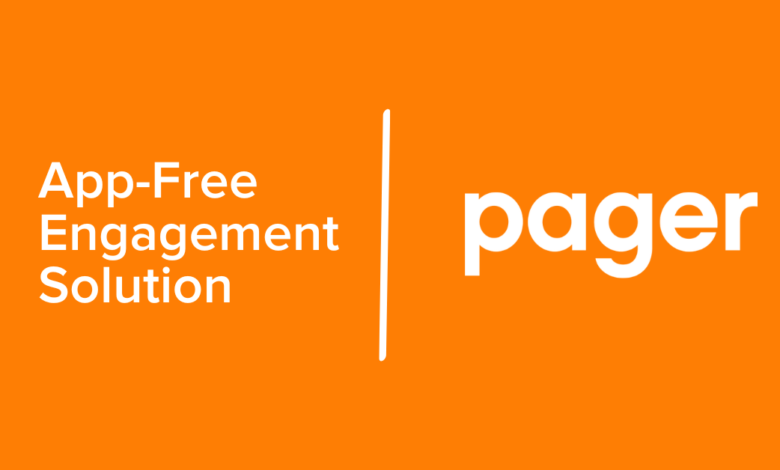The Evolution and Relevance of Pager Apps in Modern Communication

Introduction
Pagers once ruled the pager app communication world, particularly in the 1980s and 1990s. They revolutionized how people stayed in touch by providing a reliable way to send and receive short messages, even in areas where other communication tools struggled. Fast-forward to today, traditional pagers have largely become obsolete, replaced by modern technology. However, their legacy lives on in pager apps, which bring the simplicity and pager app efficiency of pagers to smartphones and other digital devices.
Pager apps adapt the core concept of pagers—quick, reliable communication—while incorporating advanced features that make them relevant for modern users. From healthcare to emergency services, these apps ensure that critical information reaches the right people at the right time. As communication needs evolve, pager apps demonstrate how innovation can bridge the gap between tradition and technology.
What Are Pager Apps?
Pager apps are digital tools that mimic the functionality of traditional pagers while offering enhanced capabilities. Unlike their predecessors, these apps run on smartphones, tablets, and computers, leveraging the internet to send and receive messages. They enable users to communicate instantly, whether through text, audio, or multimedia.
Traditional pagers were one-dimensional, transmitting numeric or alphanumeric messages. Pager apps, however, are multidimensional. They integrate seamlessly with other apps and devices, allowing for rich communication experiences. Popular examples include TigerConnect and Spok, which cater specifically to industries requiring high-speed, secure communication.
The difference lies in versatility. While traditional pagers relied on radio signals, pager apps work over Wi-Fi, cellular networks, or both. This makes them accessible almost anywhere, breaking the limitations of geography and network strength that traditional pagers faced.
How Pager Apps Work

Pager apps operate using an intuitive and straightforward mechanism. When a user sends a message, the app routes it through an internet connection to the recipient’s device. Many apps use encryption protocols to ensure the security of these messages, making them ideal for sensitive communications.
These apps often come with additional features, such as delivery confirmations, timestamps, and read receipts. Unlike traditional pagers, which required separate hardware, pager apps are integrated into devices most people already own, like smartphones. This reduces costs and eliminates the need for extra equipment.
Moreover, some pager apps function offline or with limited connectivity by storing messages and sending them as soon as the connection is restored. This reliability is critical in emergencies, ensuring messages are not lost in transmission. Pager apps also support integrations with other systems, such as electronic health records or scheduling software, enhancing their utility in professional settings.
Advantages of Pager Apps
Pager apps offer several advantages over traditional pagers and even some modern communication tools.
- Instant Communication: Pager apps ensure that messages are delivered quickly, which is crucial in industries like healthcare and emergency services.
- Enhanced Features: With capabilities like multimedia support, group messaging, and scheduling, pager apps go beyond simple text communication. These features make them indispensable for collaborative environments.
- Cost-Effectiveness: Unlike traditional pagers, which required costly hardware and subscription fees, pager apps are often free or come with affordable pricing plans. Since they operate on devices people already own, there’s no need for additional investments.
- Industry Applications: Pager apps excel in industries where timely communication is critical. In healthcare, they enable quick coordination between doctors and nurses. In emergency services, they ensure that critical alerts reach the right personnel immediately.
These advantages demonstrate why pager apps have become a go-to solution for many organizations, ensuring seamless and efficient communication.
Challenges and Limitations of Pager Apps
Despite their benefits, pager apps are not without challenges.
- Dependence on Connectivity: Since these apps rely on internet access, poor connectivity can hinder their effectiveness. In remote areas or during network outages, traditional pagers might still have an edge.
- Security Concerns: While many pager apps offer encryption, no system is entirely immune to breaches. Sensitive industries like healthcare must ensure compliance with data protection regulations, such as HIPAA in the United States.
- User Adaptation: Transitioning from traditional pagers or other tools to pager apps can pose a learning curve, particularly for less tech-savvy users. Ensuring smooth adoption often requires training and technical support.
Understanding these limitations is crucial for organizations considering pager apps. It helps them mitigate risks and optimize the benefits these apps provide.
The Role of Pager Apps in Specific Industries
Pager apps shine brightest in industries that require instant and reliable communication.
- Healthcare: In hospitals, pager apps streamline communication between doctors, nurses, and administrative staff. They allow quick sharing of patient updates and urgent alerts, improving overall efficiency and patient care.
- Emergency Services: First responders depend on rapid, accurate communication. Pager apps ensure that alerts about emergencies, such as natural disasters or accidents, are delivered without delay, saving lives.
- Corporate Communication: In offices, pager apps help teams coordinate projects and manage schedules. Their ability to support group messaging and integrations with productivity tools makes them a valuable asset for businesses.
By addressing specific needs in these industries, pager apps prove their versatility and importance in today’s communication landscape.
Future Trends for Pager Apps
As technology advances, pager apps are set to evolve further.
- Integration with AI and IoT: Artificial intelligence could enable smarter notifications and automated responses, while the Internet of Things (IoT) might allow pager apps to connect with medical devices or sensors for real-time updates.
- Enhanced Security: With growing concerns about data privacy, developers are likely to focus on stronger encryption and compliance with global standards.
- Expanding Markets: As remote work becomes more common, pager apps could find new uses in industries like education, logistics, and customer service.
The future of pager apps looks promising, driven by continuous innovation and the increasing demand for reliable communication tools.
Conclusion
Pager apps represent the perfect blend of simplicity and sophistication, transforming how people communicate in various settings. By modernizing the pager concept, these apps address the needs of industries requiring instant, secure, and versatile communication. Despite some challenges, their advantages far outweigh the limitations, making them indispensable in today’s fast-paced world.
FAQs
- What is a pager app used for?
Pager apps are used for quick, reliable communication, often in industries like healthcare and emergency services. - How do pager apps differ from traditional pagers?
Pager apps run on smartphones, offer multimedia support, and use the internet for communication, unlike traditional pagers that relied on radio signals. - Are pager apps secure?
Most pager apps implement encryption, but security depends on the app and its compliance with industry standards. - Can pager apps work offline?
Some pager apps store messages offline and send them when connectivity is restored. - Which industries benefit most from pager apps?
Healthcare, emergency services, and corporate sectors are the primary beneficiaries.
You may also read:https://daliyusanews.co.uk/amion-physician-scheduling/





